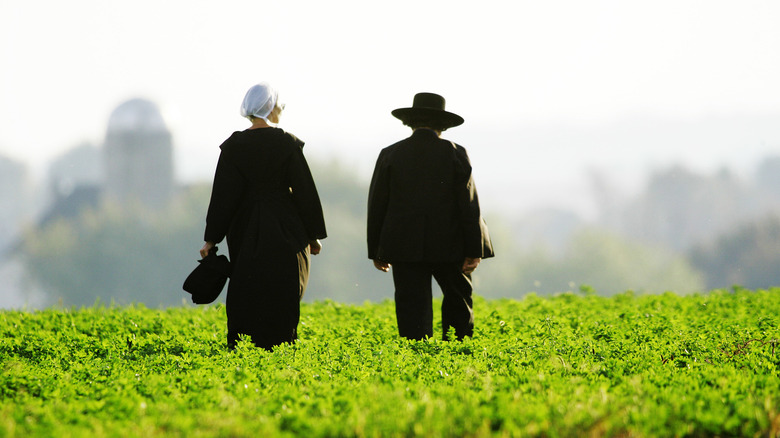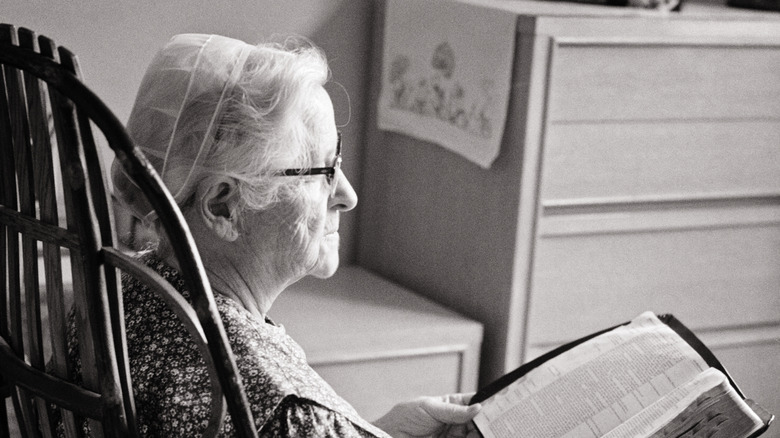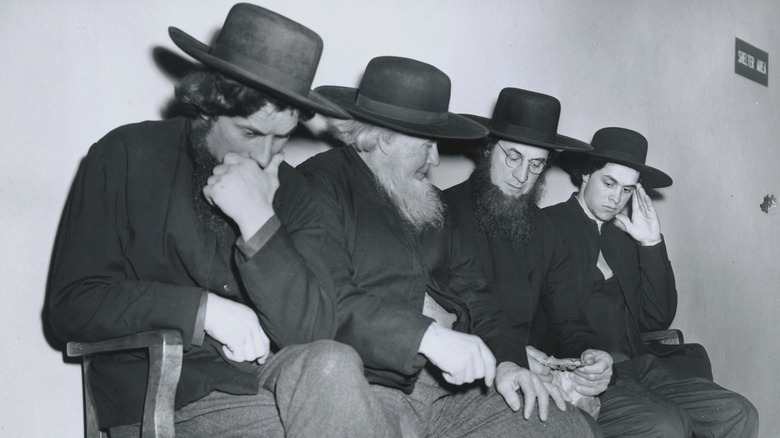Why Many Amish People Don't Actually Have Social Security Numbers
Social Security numbers are part of our identities in the United States. Most parents apply for them when their baby is born — the same time they send off the info required for a birth certificate. From the get, that number follows us everywhere as an identifier. Like a fingerprint, it's unique to us while we're alive, and no two are the same. It would be difficult to navigate through life in America without a Social Security number, as everyone from banks to doctors' offices to rental units asks for it. But its initial purpose was to track people's work history in order to calculate how much in Social Security benefits they would draw once they retired.
In 1935, in the midst of the Great Depression, the Social Security Act was signed into law. It allowed people to sign up for financial insurance that acted as a sort of savings plan — the federal government garnered a percentage of their wages, and when they turned 65, they could be assured that money was still coming in until they died. That said, it didn't apply to farmers, and the Amish, who had left their native country to embark in a new territory known as Pennsylvania in 1737, then as now, farmed as part of their livelihoods. Within the first month of Social Security registration, 22 million people had applied, but no Amish were among them. Eventually, they would be allowed to apply, but as the have often done throughout history, they balked at being involved in the progression of American life.
They don't believe in insurance
The Amish are known for sticking to their guns. Their strong belief systems stemming from their Christian faith inform the way they live their lives with simplicity, eschewing modern technology and conveniences. When Social Security first became available, it wasn't an option for them since they were never going to be a cog in the wheel of the Industrial Revolution or punching a time clock. However, in 1954, the Social Security Act was amended to include farmers and the Amish, but the Amish didn't want to buy in.
PBS reported that they collected 14,000 signatures on a petition to refuse to pay into the social insurance policy — they didn't believe it aligned with their beliefs and values. According to what Elizabethtown College professor and Anabaptist expert Donald Kraybill told Delaware Online, they didn't want to be part of the Social Security system or eventually collect benefits because the "Bible teaches them that Christians should help take care of one another." The Amish focus on their community, large families, and commitment to their belief system. And this means that unlike people in the rest of the U.S., they are confident that when they are too old to work, all of their needs will still be met by their relatives, their church, and the community they live in. What a concept.
The Amish are exempt from being in the Social Security system, but there's a caveat
While the Amish petitioned to opt out of paying into Social Security, it took about a decade for the government to acquiesce. Initially, the group refused to pay in, so the IRS did what the IRS does when people don't pay — they took their stuff. In the case of the Amish, PBS says the federal government confiscated their property. But in 1965, another amendment to the Social Security Act exempted the Amish from having to have Social Security numbers or pay into the system. When their babies are born, they fill out Form 4029, and the IRS exempts their children from having SS numbers.
While self-employed Amish are exempt, those who own businesses that employ people are not allowed to opt out of paying Social Security taxes for their workers. They are also required to pay the standard business owner's portion of SS taxes due to a 1982 Supreme Court decision. According to The New York Times article from that year, Chief Justice Warren E. Burger wrote in his decision that there is a limit to what the government will allow religious groups to refuse. He pointed out that they can choose to ”enter into commercial activity” in which they employ others, writing: ”To maintain an organized society that guarantees religious freedom to a great variety of faiths requires that some religious practices yield to the common good.”


